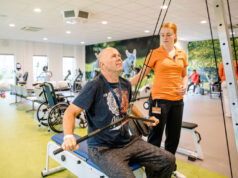 Tonix Pharmaceuticals has announced the initiation of a Phase 1 single ascending dose escalation study of TNX-1500 (Fc-modified humanized anti-CD40L monoclonal antibody or mAb), a drug aimed at preventing rejection of transplanted kidneys, in healthy volunteers. The primary objectives of the study are to assess the safety, tolerability, pharmacokinetics and pharmacodynamics of intravenous (IV) TNX-1500.
Tonix Pharmaceuticals has announced the initiation of a Phase 1 single ascending dose escalation study of TNX-1500 (Fc-modified humanized anti-CD40L monoclonal antibody or mAb), a drug aimed at preventing rejection of transplanted kidneys, in healthy volunteers. The primary objectives of the study are to assess the safety, tolerability, pharmacokinetics and pharmacodynamics of intravenous (IV) TNX-1500.
TNX-1500 is in development for the prevention of kidney transplant rejection “and other potential transplant and autoimmune disorder indications”, a company press release notes. It adds that recent animal studies indicate that TNX-1500 prevents organ rejection and preserves graft function either as a single agent or in combination with other drugs. Eligible participants enrolled in the Phase 1 study will be evaluated regularly over a 120-day period after dosing. Target enrolment is 36 participants. Initiation of this first-in-human study is intended to support dosing in a planned Phase 2 trial in kidney transplant recipients.
“Despite advancements in the field of solid organ transplantation, there remains a significant need for new treatments with improved activity and tolerability,” said Seth Lederman, CEO of Tonix Pharmaceuticals. “TNX-1500 has demonstrated single agent activity for long-term organ acceptance and induction of tolerance in animals. Potentially related to its activity, in preclinical studies, TNX-1500 preserves T regulatory cells, or Tregs, which are key to maintaining tolerance to grafts as well as to self-antigens.
“We believe TNX-1500 has the potential to prevent organ transplant rejection and improve long-term graft survival with reduced long-term toxicity burden compared to current immunosuppressive regimens. In addition, TNX-1500 has the potential to address multiple indications, including a number of autoimmune diseases. The range of potential indications suggests ‘pipeline in a product’ potential.”
“We are excited to advance TNX-1500 into the clinic by initiating this Phase 1 trial,” said Greg Sullivan, chief medical officer of Tonix. “TNX-1500 is a third generation anti-CD40L mAb that has been designed by protein engineering to decrease FcγRIIA binding. Preclinical studies in non-human primates demonstrated that TNX-1500 is active in preventing allograft organ rejection and is well tolerated. Specifically, thrombotic complications associated with first generation anti-CD40L mAbs, were not observed, suggesting that the protein engineering underlying TNX-1500 has achieved its design goals.”
Lederman continued: “Recently, positive clinical data with other CD40L blockers have been reported […] Based on results from animals, we consider Fc-modified humanized TNX-1500 to be a potential best-in-class therapeutic in the CD40L blocker space. It is the first of Tonix’s internally-developed biologic candidates to reach the clinic.”











